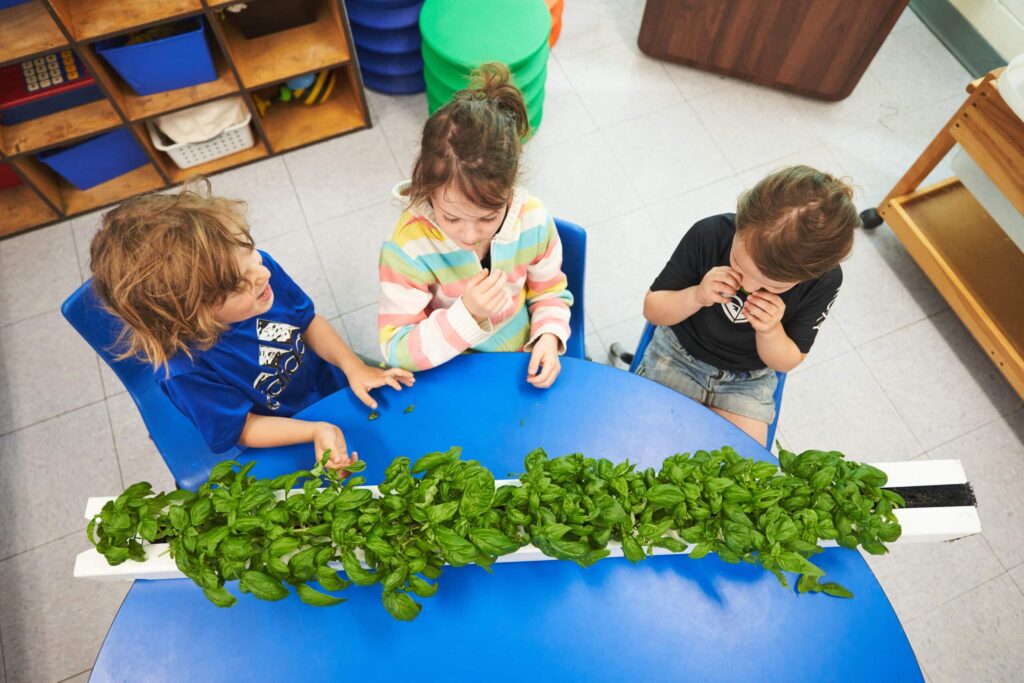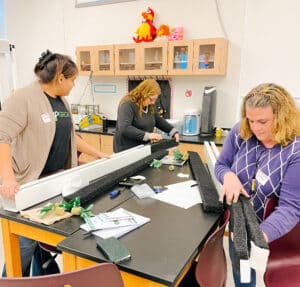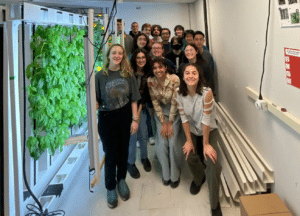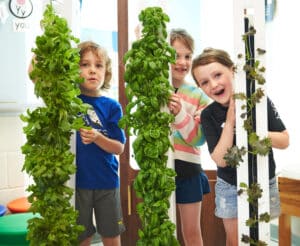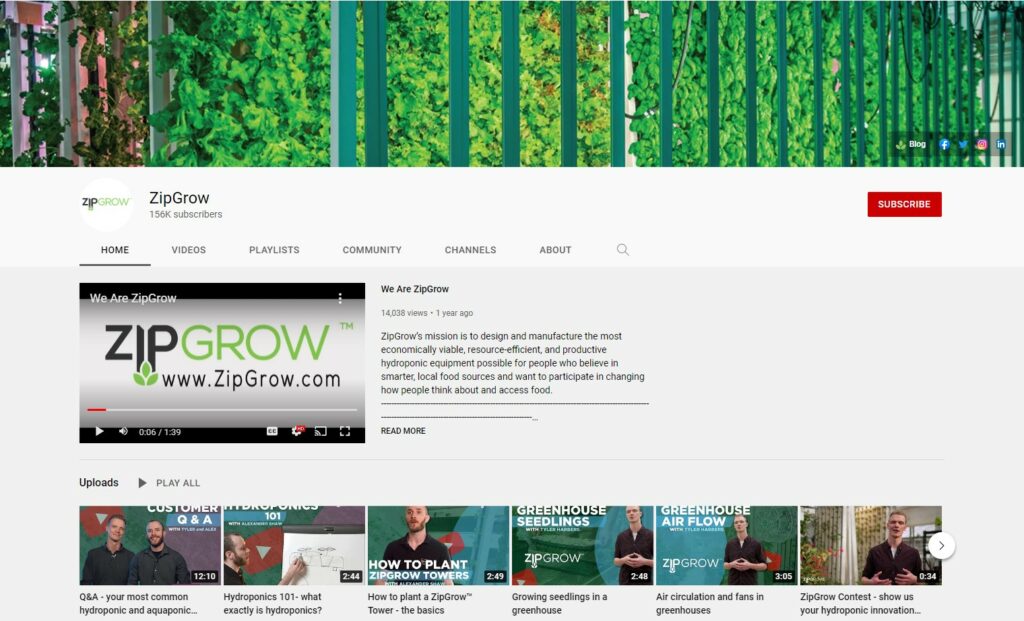Did you know that chewing basil can freshen bad breath? Well, the kinders at Williamtown Public School do, and they learned this in some of their findings from growing their own: hydroponically.
Meet Rose MacCulloch. She’s a kindergarten teacher at this progressive country school in Eastern Ontario. She uses a hands on, life experience approach in her teachings and with it brings a whole lot of curiosity.
The addition of a ZipGarden in her classroom ignited a spark for learning all about
growing plants among these energetic and inquisitive students, and you could say that she teaches a different form of ABCs to her students, that is to:
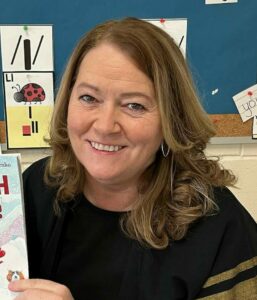
A- always
B- be
C- curious
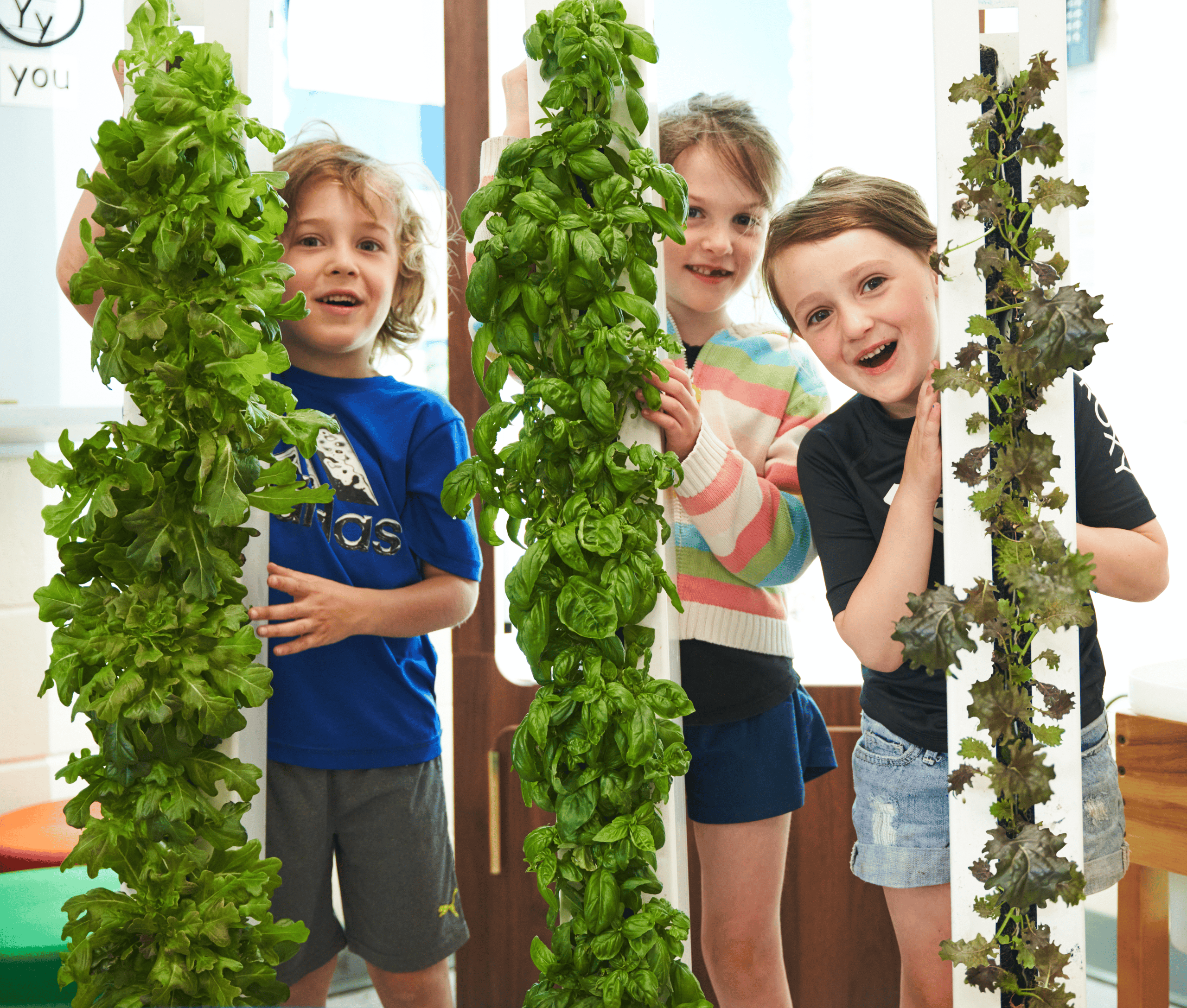 Pictured Left to Right: Henry Lee Emery, Rosie Vanderburg and Charlee Elderbloom, Kindergarten students at Williamstown Public School
Pictured Left to Right: Henry Lee Emery, Rosie Vanderburg and Charlee Elderbloom, Kindergarten students at Williamstown Public School
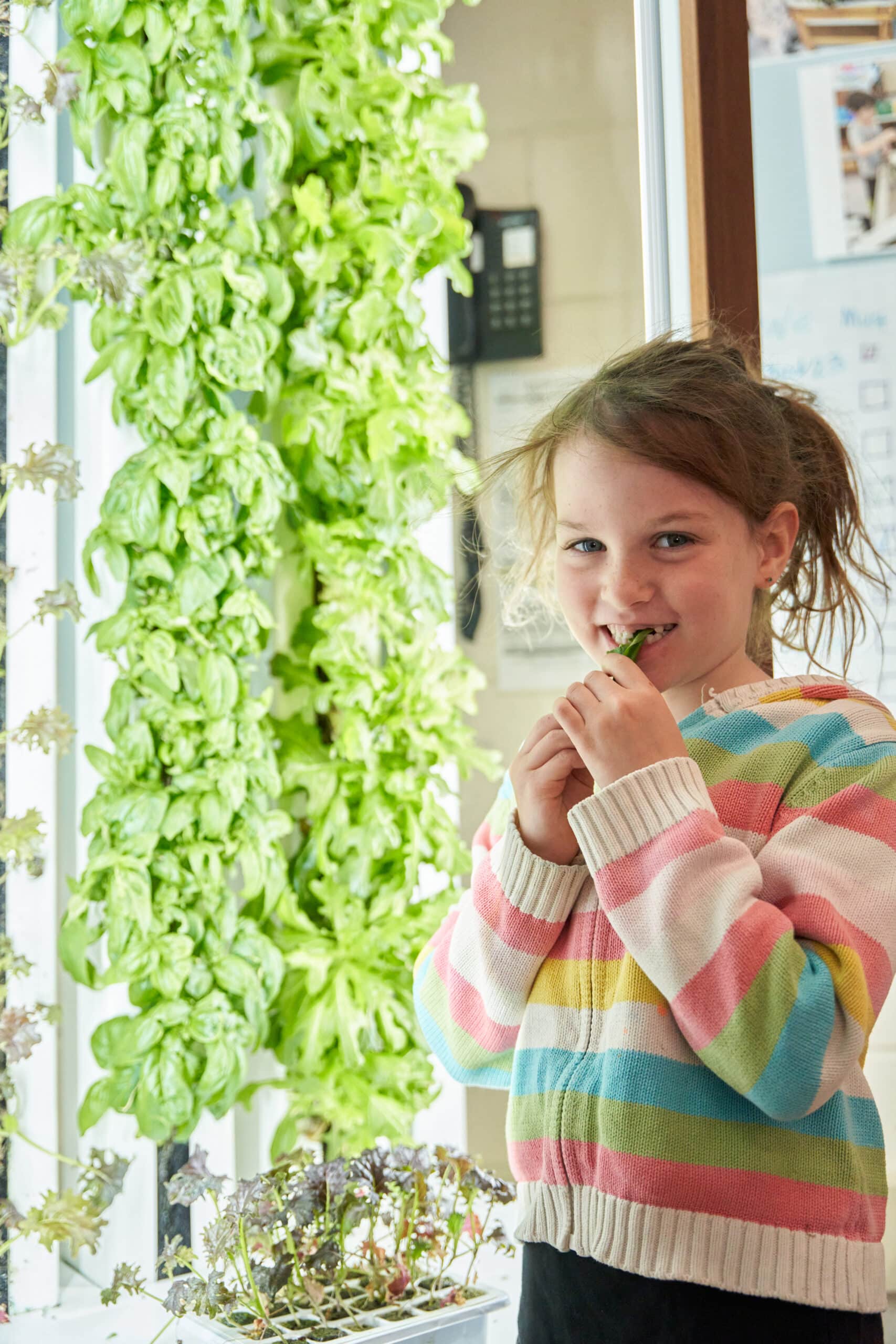 We visited with students Rosie Vanderburg, Henry Lee Emery, and Charlee Elderbloom. Rosie was munching away on basil leaves for most of the visit as they proudly showed us what they grew with their friends in the ZipGarden Towers.
We visited with students Rosie Vanderburg, Henry Lee Emery, and Charlee Elderbloom. Rosie was munching away on basil leaves for most of the visit as they proudly showed us what they grew with their friends in the ZipGarden Towers.
Mrs. MacCulloch has been teaching for over 30 years.
She explains how the children’s genuine curiosity about the hydroponic system has led to many questions that took the learning in various directions and tapped into all curriculum areas.
“As we started the journey of placing our seedlings on the felt wicking strips, some students wanted to know how we were going to add the soil. We saw some doubting faces when they were told there would be no soil. We decided we would also plant some of the seedlings in soil too and place them on the windowsill. After a month, we had no more doubts; in fact, these little 5-year-old students concluded that plants grow faster in the ZipGarden.
The discussions leading to this statement during the four weeks showed their understanding and confusion along the way. There is nothing better than authentic learning for children to make connections to how things in our world work.
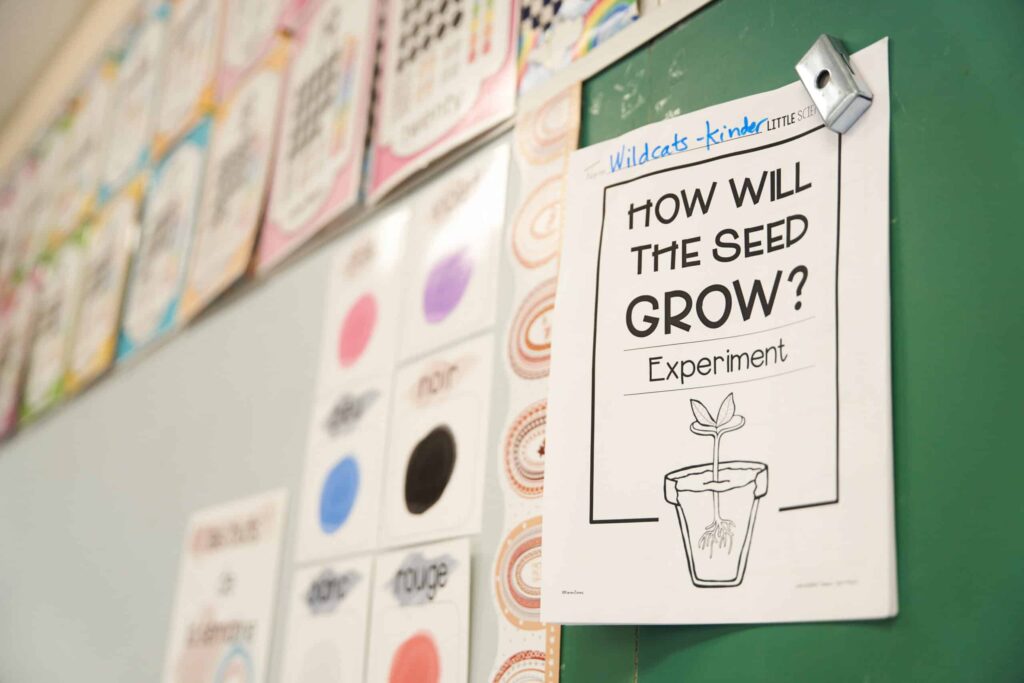
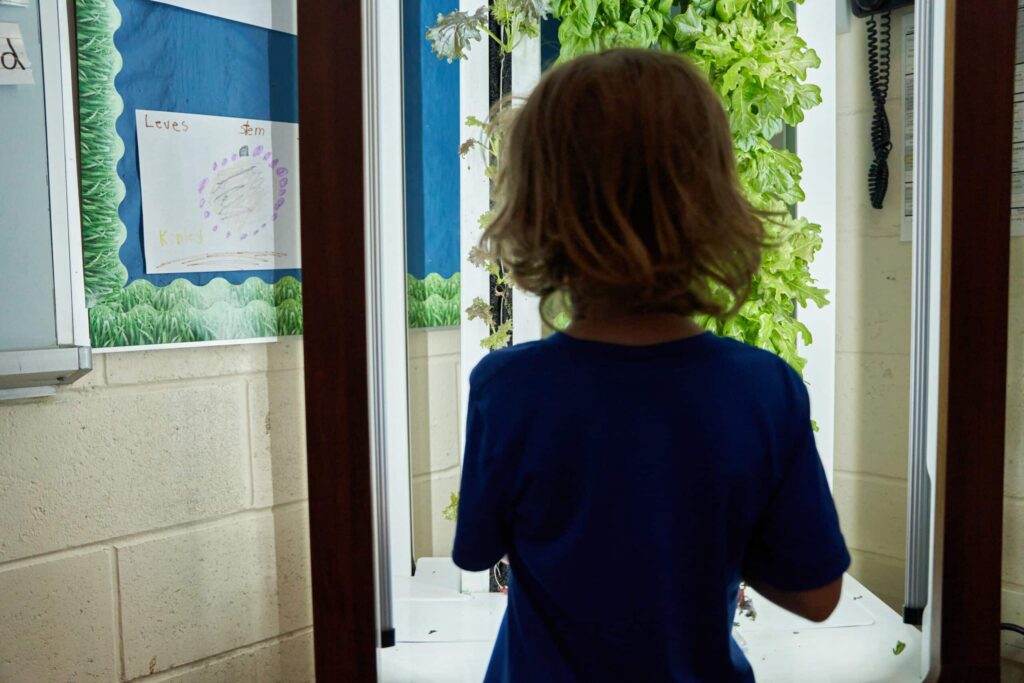
Literacy came into play immediately as students learned new vocabulary. We introduced the
nutrient packets that we added every two weeks to the water. Students made the connection that the nutrients we added to the plants made them grow just like the chewable vitamins they take to make them healthy and grow. The plants grow vertically in our garden and not horizontally like in the gardens we plant outside.
Our kindergarten students love labeling things in our classroom, and the plants are new things that need labeling.
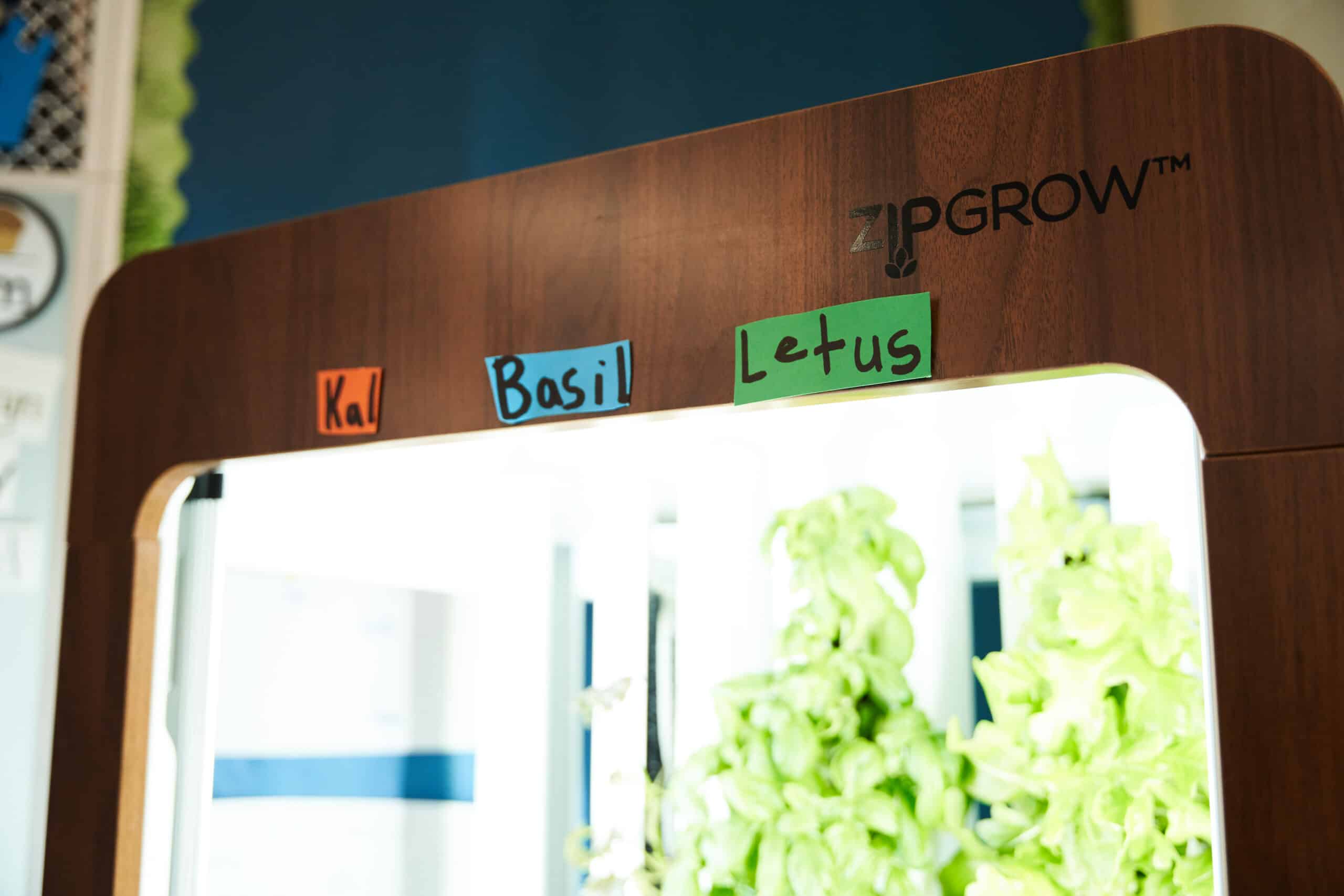
They phonetically spelled lettuce (letus), and kale (kal) as they independently made the labels.
We incorporated math as students wondered which plants would grow the fastest. We tied a string on one leaf of each plant variety. Using nonstandard measuring tools students measured those same leaves, collecting data every three days and documenting their findings on a graph.
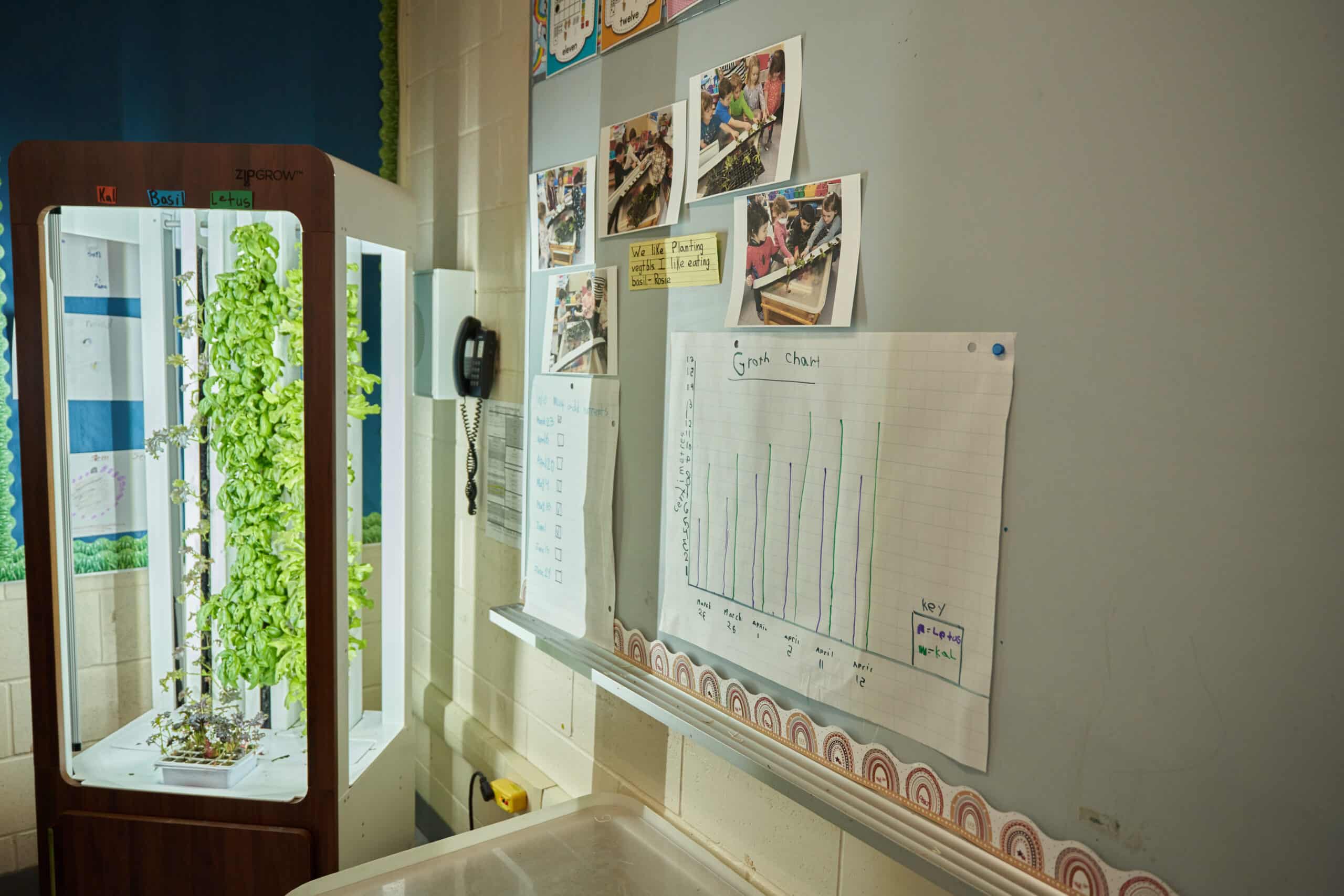
One little boy counted 23 leaves on one basil plant.
We discussed how our garden has a timer set to give our plants 12 hours of light daily. Students made the connection that sometimes the sun doesn’t shine, so the plants outside don’t get as much light some days.
Of course, the best part of our garden is for the children to take their harvest home; bags of lettuce, kale, and basil, which they can share with their families. Parents have shared how proud their children are when their greens and herbs are used in salads or homemade pizzas.”
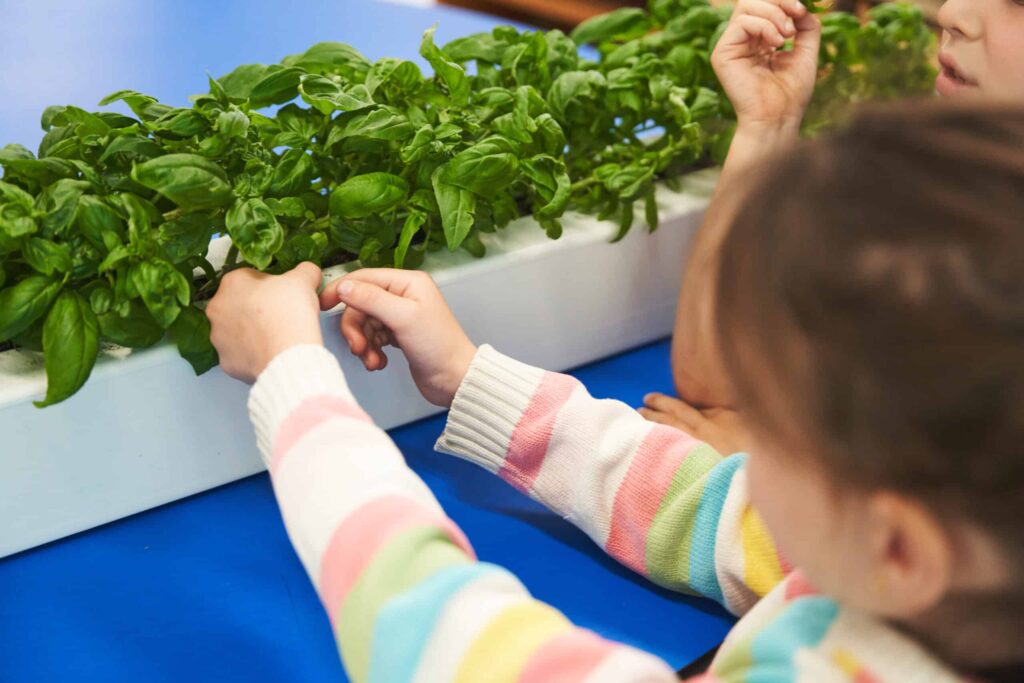
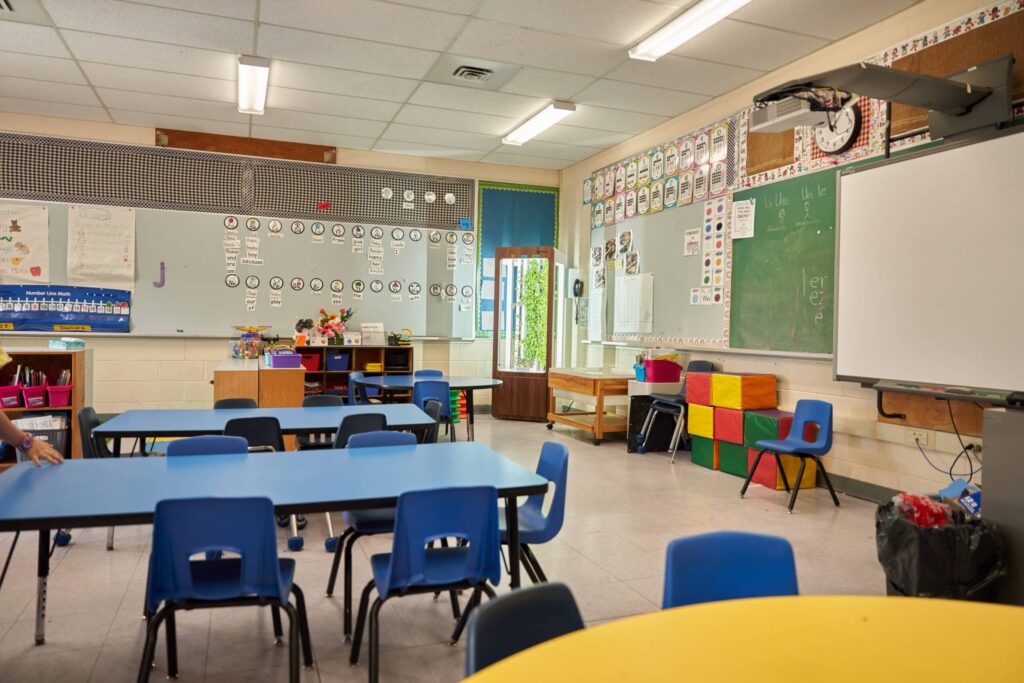
During our visit with Mrs. MacCulloch and the students, we saw how hydroponics are also incorporated into other teachings about growing plants and sustainability.
They had placed seeds in rocks, sand, soil, and on a wet paper towel. They also (by request of a child) had placed seeds in a dark closet. They were looking to see which seeds would “win the race.” Mrs. MacCulloch explained that seeds were left unwatered over a long weekend in a previous trial. When the children returned to school, they discovered the seeds had died.
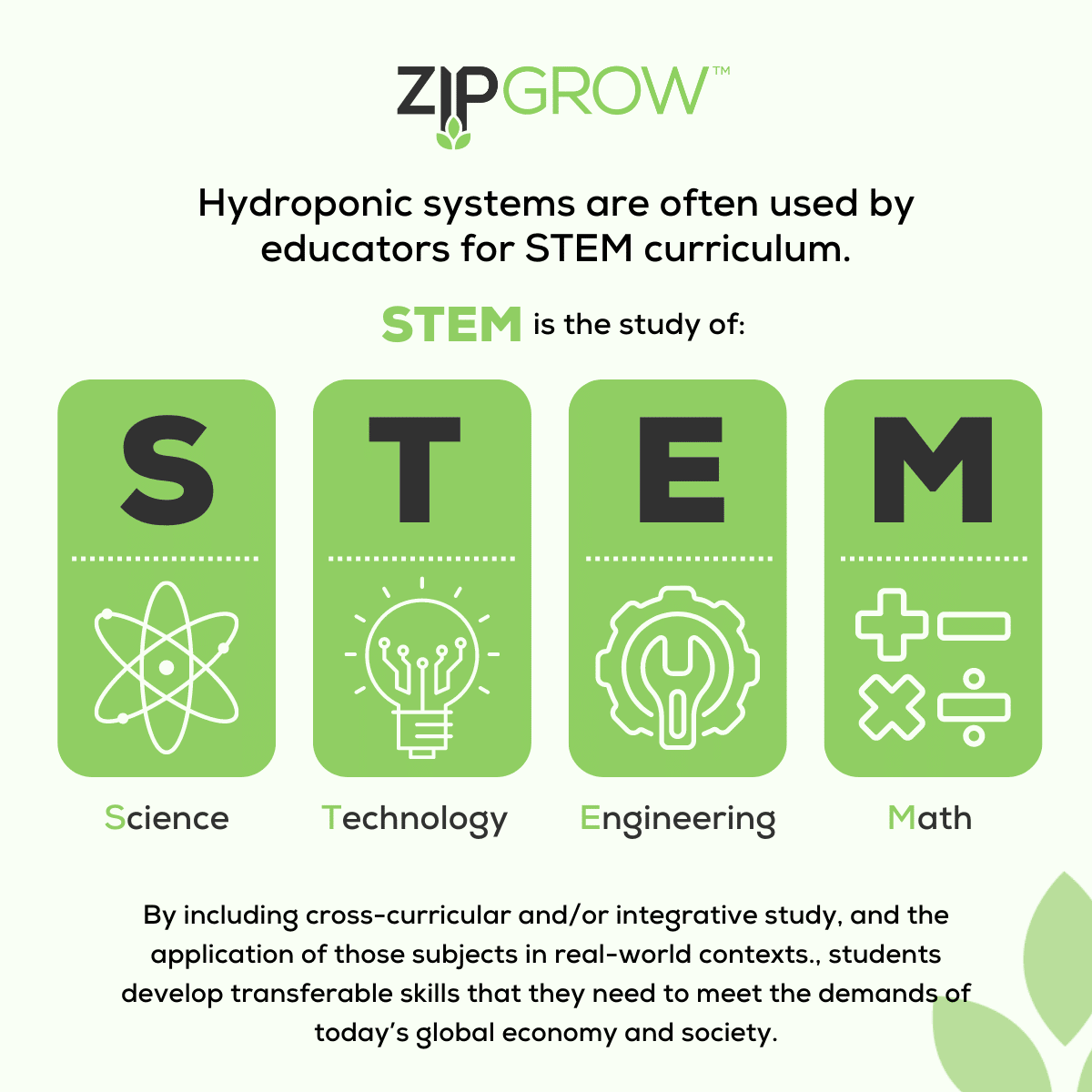
Lesson: water is life.
The classroom also had a composting system provided to the school as part of a sustainability initiative from their South Glengarry Township. The composter is used daily with food scraps, fruit peelings, etc., from the children’s lunches to make more soil.
Lesson: the circle of life.
A child’s mind is a little sponge, and the kids at Williamstown Public School are certainly soaking up all this knowledge of plant science, technology, engineering, and math.
Zipgrow Gardens offer real life learning within the classroom walls and allowed our youngest learners to share their knowledge with other classes and their families
Mrs.Rose MacCulloch - Williamstown Public School, Ontario
Are you a teacher using ZipGrow systems in education? We would love to hear from you and how you incorporate STEM teachings or life-lesson learnings into your curriculum.
Contact us- [email protected]
